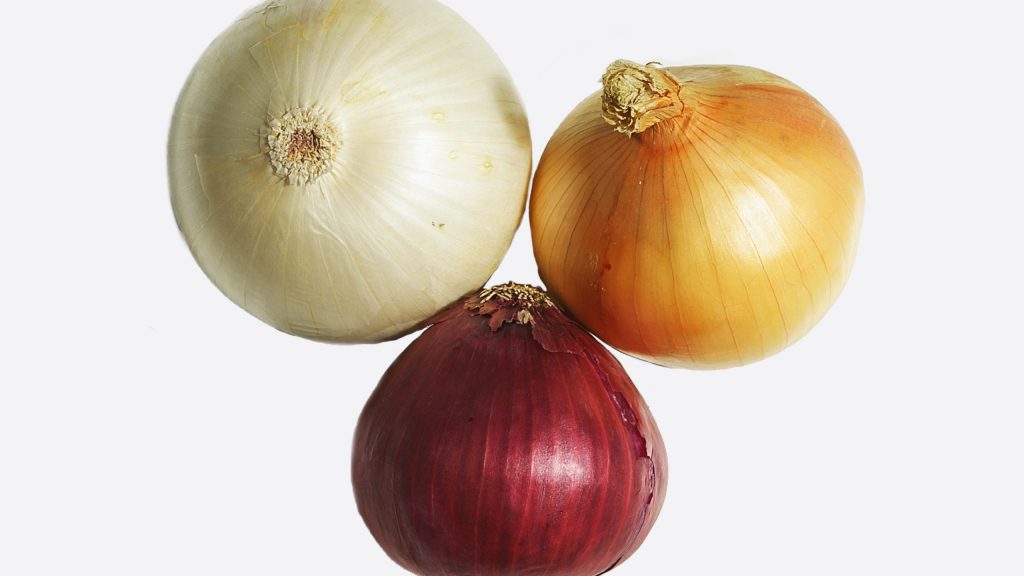CUT ONION IS POISONOUS — Experts
Onions have a plethora of health benefits to offer, from better libido, ache-free skin to improved immunity. In fact, clinical nutritionists recommend peeling and eating onion raw rather than having its cooked form because it has more sulphur and antioxidants as benefits.
No doubt, onions improve meal taste but researchers, in a new study, are asking that individuals cut down on their consumption of raw onion, especially when such is not freshly cut. They said that cut onions can serve as a sponge for microorganisms and other disease-causing agents, even if they were cut open for only a short period of time.
The researchers, in a study on microbial contamination of cut and exposed onions, isolated different disease-causing organisms from different raw onion cuts, even when the cut was done for only a short period of time.
The aim of this study published in the 2020 edition of the Journal of Advances in Microbiology was to know if onions have the ability to absorb microorganisms from the atmosphere even for a short period of time, the type of microorganisms and if they are implicated in the spoilage of cut onions.
For the study, 30 healthy and fresh onion samples gotten from open markets in Port Harcourt were exposed in three batches. The time of open-air exposure ranges from one hour to eight hours at different sites.
The sites of exposure include living rooms, public conveniences, kitchens, fridge, freezer, and roasted plantain eateries. Half onion bulbs at different sites were exposed while the other halves were cultured immediately without exposure, to serve as a control.
After inoculation, the bacteria and fungi present on the cut surfaces of the onions were identified and counted, showing that the microorganisms isolated from the test onions were likely acquired from the environments in which they were exposed.
The isolated organisms showed a high potency to cause diseases, and some possessed the ability to cause food poisoning if ingested.
Pseudomonas sp., Bacillus cereus, Escherichia coli, Staphylococcus sp., Klebsiella sp., Enterobacter sp., yeast and Aspergillus sp., were isolated with Klebsiella sp., Pseudomonas sp. and Staphylococcus sp. having the highest number of occurrence of 40 per cent having been isolated from 12 test samples each.
- cereus had a percentage occurrence of 30 per cent, having been isolated from nine test samples. E. coli had a 10 per cent occurrence having been isolated from three test samples, while Enterobacter sp. had the lowest rate of occurrence having been isolated in just one test sample.
For the fungi isolates, Aspergillus sp. had a percentage occurrence of 76.6 per cent having been isolated in 23 test samples, while yeast had a percentage occurrence of 66.6 per cent, having been isolated in 20 test samples.
The isolated organisms were all disease-causing organisms, and some such as Staphylococcus sp. and Bacillus sp. have been implicated in causing food poisoning. Some other isolated organisms have also been implicated in the spoilage of onions.
Interestingly, disease-causing organisms such as Escherichia coli, Pseudomonas sp, and Staphylococcus sp. was detected in cut onions that were stored even in the fridge, freezer and kitchen.
The researchers stated that although these organisms isolated from the exposed test onion samples are organisms which are capable of causing disease, “what is however not determined by this work is whether the amount obtained has the ability to cause food poisoning and other diseases in humans.”
They, however, recommended that users of onions should try as much as possible to desist from the habit of storing cut onions which are meant to be used later because certain disease-causing organisms can contaminate the onions.
They added, “consumers of onions are advised to subject the onions to heat. This is necessary because even the control samples which were not exposed but cultured immediately also showed the presence of spoilage microorganisms. This establishes onions as a reservoir of microorganisms.”
Despite the various health benefits ascribed to onions, several rumours have been spread, especially on the online media as regards its ability to act like a sponge absorbing microorganisms from the atmosphere once cut open and left exposed in the atmosphere.
In another account, Dr Bartholomew Brai, a nutritionist at the Federal University, Oye-Ekiti, claimed that onion contains sugar which promotes bacterial growth, thus exposed cut portions should be avoided as it could cause adverse stomach infections and food poisoning due to secretion of bile salts.
@ Nigerian Tribune

